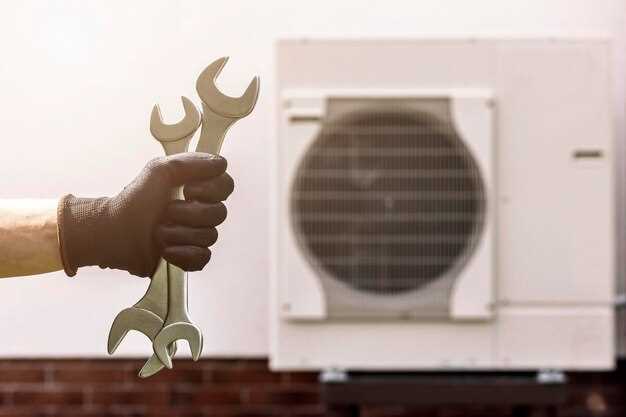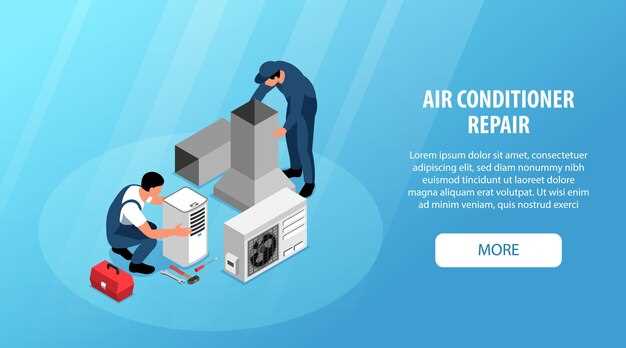

Maintaining a comfortable environment in your car largely depends on the efficiency of your air conditioning (AC) system. When the temperatures rise, a well-functioning AC is crucial for not only your comfort but also your safety. Ignoring signs of trouble can lead to further complications and costly repairs down the line.
The AC system in your vehicle plays a vital role in ensuring a pleasant driving experience. As a car owner, it’s essential to be vigilant and recognize the signs that your AC might be under duress. Identifying these red flags early can save you time, money, and discomfort during the hot months.
In this article, we will explore the key indicators that your car’s AC system requires immediate attention. From unusual noises to inconsistent cooling, recognizing these symptoms is the first step toward effective solutions. Stay informed to keep your vehicle’s air conditioning running smoothly and efficiently.
Unusual Noises Indicating Refrigerant Issues
One of the primary signs that your AC system may be experiencing refrigerant issues is the presence of unusual noises. Typically, an air conditioning unit operates with a consistent hum, but when there are fluctuations, it may signal a problem. A hissing or bubbling sound often indicates that the refrigerant is leaking. This escaping refrigerant can lead to a significant drop in cooling efficiency and, if left unaddressed, could damage the compressor.
Another concerning noise is a gurgling or glugging sound. This may occur when refrigerant levels are low, causing the unit to struggle to maintain the desired temperature. Low refrigerant levels can also contribute to compressor failure, making it essential to address these sounds promptly.
If you hear a loud banging or clattering, it may not directly result from refrigerant issues, but it can signify a refrigerant line that has come loose due to failing components. This could lead to a more severe refrigerant leak if not inspected. Consequently, any unusual noises, particularly those related to refrigerant flow, should be taken seriously and warrant immediate attention from a qualified technician.
Signs of Inadequate Cooling in Car AC Systems

When the air conditioning (AC) system in your car is not functioning effectively, it can lead to discomfort, especially during hot weather. Recognizing the signs of inadequate cooling is essential for maintaining a comfortable driving experience.
1. Insufficient Airflow: If you notice weak air blowing from the AC vents, it may indicate a problem with the blower motor or an obstruction in the air ducts. Check for any debris that might be blocking airflow.
2. Warm Air Instead of Cold: A clear sign of inadequate cooling is when the air coming from your AC vents is not as cold as it should be. This can be a sign of low refrigerant levels, which might be due to a leak in the system.
3. Unusual Noises: If your AC system is making strange sounds, such as hissing or grinding, it may be a sign of internal issues. Hissing could indicate a refrigerant leak, while grinding sounds can point to a failing compressor.
4. Foul Odors: Musty or moldy smells coming from the AC vents can indicate mold growth within the system. This not only affects cooling efficiency but could also lead to potential health issues.
5. Frequent Cycling: If you notice that your AC system is constantly turning on and off, it may indicate a problem with the temperature sensor or the refrigerant levels. This cycling behavior can reduce the overall efficiency of your AC.
6. High Pressure on the AC System: If you observe that the low-pressure gauge shows lower than normal readings while the high-pressure gauge shows elevated levels, this imbalance can signify a refrigerant issue or blockage within the system.
Addressing these symptoms promptly can help restore your car’s AC efficiency, ensuring a more comfortable ride and preventing further damage to the system.
Warning Lights Related to Refrigerant Levels

One of the critical indicators of an air conditioning (AC) system’s health is the refrigerant level. Low refrigerant can lead to poor cooling performance and potential damage to the system. Here are warning lights that often indicate issues related to refrigerant levels:
- Low Refrigerant Light: Many modern AC systems are equipped with a warning light that specifically alerts you when the refrigerant levels drop below acceptable thresholds. Ignoring this light can lead to compressor failure.
- Check Engine Light: Although this light is often associated with engine performance, it can also activate due to refrigerant issues in vehicles equipped with integrated climate control systems. If this light comes on, it might be time to check the refrigerant levels.
- AC System Warning: Some vehicles and HVAC units have dedicated warning indicators for the AC system. If this light appears, it may signal low refrigerant or other refrigerant-related problems that require immediate inspection.
Recognizing these warning lights is crucial for maintaining your AC system. Here are some common signs associated with low refrigerant levels:
- Reduced Cooling Efficiency: If your AC is not cooling as effectively as before, low refrigerant might be the cause.
- Ice Formation: Ice on the evaporator coil can be a sign of low refrigerant levels, leading to further malfunction.
- Hissing or Bubbling Noises: Unusual noises from the AC unit may indicate a refrigerant leak.
If you experience any of these warning signs or lights, it’s essential to have your AC system inspected by a professional technician. Timely attention to refrigerant levels can prevent costly repairs and ensure your system operates efficiently.







